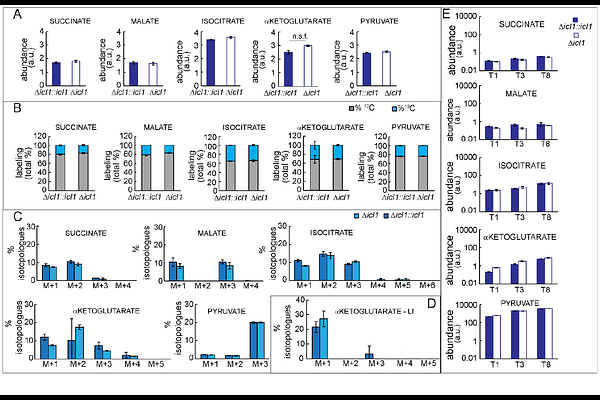Mycobacterium tuberculosis partitions the Krebs cycle to persist under iron starvation

Mycobacterium tuberculosis partitions the Krebs cycle to persist under iron starvation
Serafini, A.; Garza-Garcia, A.; Sorze, D.; de Carvalho, L. P. S.; Manganelli, R.
AbstractIn this study, we investigated how iron limitation alters central metabolism in Mycobacterium tuberculosis using metabolomics and stable isotope tracing. Our findings reveal a well-orchestrated metabolic program to enable Krebs cycle activity despite the inefficient action of its iron-dependent enzymes. Under such conditions, carbon flux through the oxidative branch of the Krebs cycle is stalled, resulting in the accumulation of metabolites that are partially secreted. As a result, carbon flux from glycolysis is partially diverted to the reductive branch of the Krebs cycle to support the production of oxaloacetate and malate through the activity of phosphoenolpyruvate carboxykinase and pyruvate carboxylase. Both branches terminate with the synthesis of malate, which is secreted. This unprecedented split of the Krebs cycle and malate secretion in a bacterial pathogen facilitates the continuous flow of carbon through the core of carbon metabolism, overcoming the metabolic stalling triggered by iron starvation.